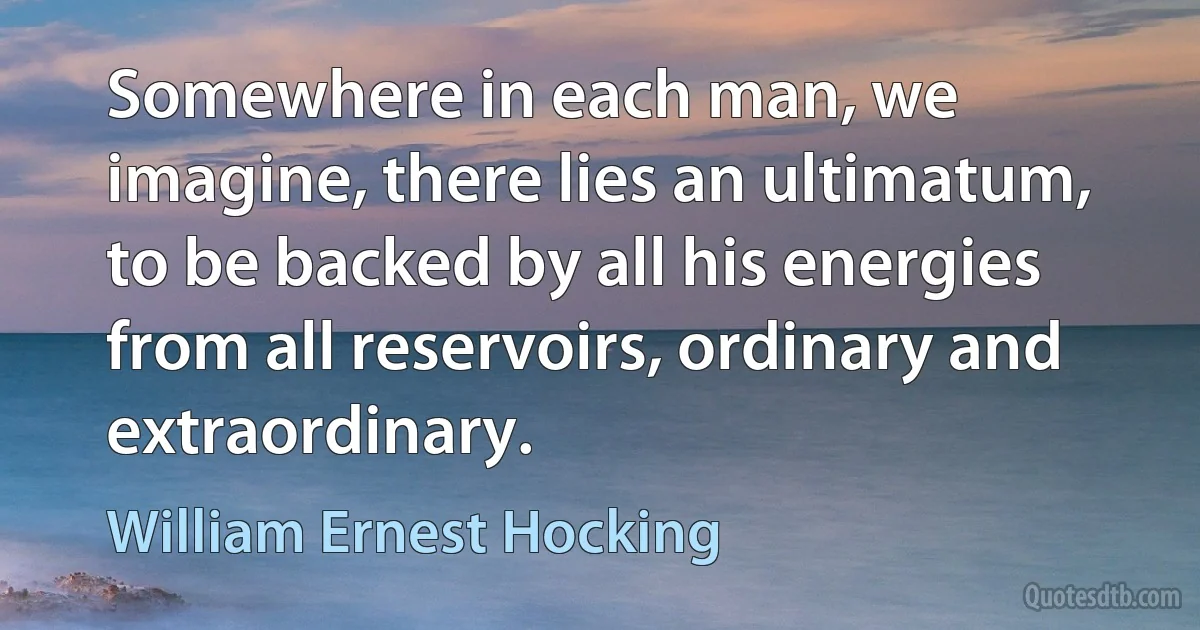William Ernest Hocking quotes
Pure community is a matter of no interest to any will; but a community which pursues a common good is of supreme interest to all wills; and what we have here said is that whatever the nature of that common good ... it must contain the development of individual powers, as a prior condition for all other goods.

William Ernest Hocking
We are driven to confess that we actually care more for religion than we do for religious theories and ideas: and in merely making that distinction between religion and its doctrine-elements, have we not already relegated the latter to an external and subordinate position? Have we not asserted that "religion itself" has some other essence or constitution than mere idea or thought?

William Ernest Hocking
Wherever moral ambition exists, there right exists.
And moral ambition itself must be presumed present in subconsciousness, even when the conscious self seems to reject it, so long as society has resources for bringing it into action; in much the same way that the life-saver presumes life to exist in the drowned man until he has exhausted his resources for recovering respiration.

William Ernest Hocking
This merely formal conceiving of the facts of one's own wretchedness is at the same time a departure from them--placing them in the object. It is not idle, therefore, to observe reflexively that in that very Thought, one has separated himself from them, and is no longer that which empirically he still sees himself to be.

William Ernest Hocking
A presumption of equality may be contrary to present fact, and yet not contrary to a desideratum. We are not as a fact all equally fit to live, equally responsible, or equally deserving of the protection of the law: but it will hardly be doubted that it would be desirable if we were.
But further, the presumption of a desired condition is, in any group of plastic minds, a force tending to bring about the thing presumed, i. e., to create it. It aids a boy to reach maturity to treat him as if he were a little older than he is. A little older: for the presumption loses its effect if it is too wide of the actual fact. The fundamental presumptions of the law are justified on this basis and to this extent: if they are too wide of the truth to be creative, they are not justified.

William Ernest Hocking



